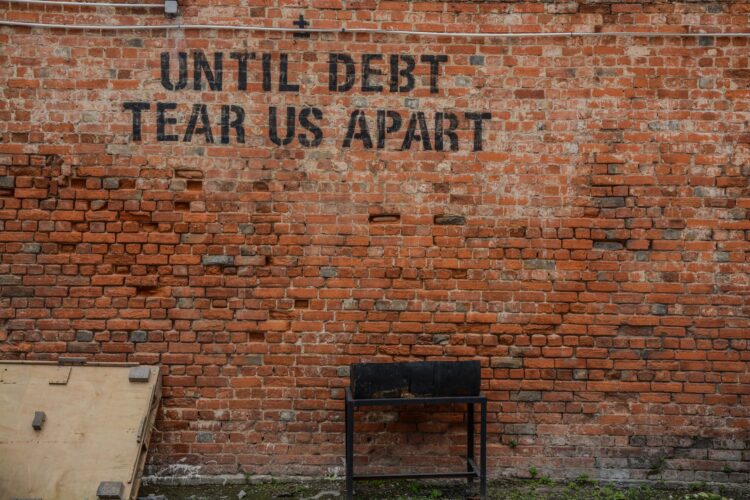Making the choice to get out of debt can change your life if you can go far enough to make the right changes. Getting out of debt is about more than just paying off your bills. It involves changing your spending habits, knowing whom you owe, creating a budget, and making an emergency fund.
The lawyers at Scura Law Firm want you to know that bankruptcy is not your only option, but it is there for you if you truly can’t pay off your debt. Luckily, avoiding the following mistakes can make the process easier for you.
1. Trying to Get Out by Yourself

Many people do not want to ask their family or friends to help get out of debt. You might not want to ask them for money, but getting emotional support is still helpful. Consider working with a credit counseling agency to get expert help. These counselors have the training to help with debt-relief solutions, such as credit consolidation or debt settlement. You can also get advice on how to create a budget. Since it is free, there is no reason to not do it.
2. Having the Wrong Expectations about Debt-
Relief Programs
There is no quick solution to being in debt. If you hear this promise, look somewhere else. A debt-relief program can take several years, so you should be patient. Make sure that you choose a reliable and licensed company.
3. Having the Same Spending Habits

Habits can be hard to break, and money habits are not any exception. You might still go to the same stores and drive the same car because you have always done that. However, it could be costing you a lot more money than you can afford. For instance, consider getting food at discount grocery stores instead of more expensive ones.
Remember, if you do not change your spending habits, you will not get out of debt. Try to eat more meals at home and take your lunch to work with you. Look for free entertainment, such as checking out movies from the library and watching them at home.
4. Not Creating a Budget
You will never control your money unless you create a budget. Some people think that it is too much work and too hard to manage. But without a budget, you might be spending a lot more money than you think, and that is how you get into debt.
Create a budget that covers food, housing, and health care. But you still want to leave room for debt. If you struggle with credit card debt, consider putting your cards away and paying your expenses with cash instead. You may need to reduce the amount you spend on entertainment and dining out. But knowing where every dollar goes is a good start.
5. Not Creating an Emergency Savings Account

Many people do not have enough money to cover an emergency expense of even a few hundred dollars. It is not possible to predict plumbing problems, a car accident, or a lost job. That is why you should have about three to six months of living expenses set aside. That way, you can easily pay for the unexpected. It could take a bit to save that much up if you are also paying off loans, but make sure that it is part of your monthly budget. Ensure that at least 5 percent of your income goes toward an emergency fund until at least three months of expenses are saved up.
6. Not Contributing to Your Retirement
You might want to put every last dollar toward your debt, but that can be costly. Try to put at least 5 to 10 percent of your monthly income toward your retirement, even if you are still young. Don’t let your debt payments cut into your savings. Time is vital when it comes to saving up for retirement, especially if you invest that money wisely and gain interest for many years. The sooner you can contribute to your 401(k), the better off you will be financially when you want to retire.
7. Paying Off Several Debts at Once

If you have student loans, credit cards, and car payments, you might be tempted to try to address them all at the same time. That is not a good move. Instead, try to trim down your budget in other areas, so you are only paying for essentials. Put the surplus toward the debt that has the biggest interest rate. Then, pay off the next debt with a high-interest rate. That will save you money in the long run, especially if you have credit card debt.
8. Not Checking on Your Credit Reports
It is vital for you to check your credit card report for inaccurate information. This will help you reduce your debt. You can get a free credit report from some of the major reporting bureaus, so try to get them every four months or so. Look at each of them carefully for balances that might hurt your credit score or for incorrect information. These issues could make it harder later to get more credit or to buy a car or a house.
9. Not Making Debt a Priority

Most people want to get out of their debt, but it can be hard to stay focused. Remember, it might be best to consolidate the payments and just make one payment every month. You can also consider getting a piece of paper and writing down the loans you most want to pay off. Tape this to your credit card and look at the reminder each time you are tempted to spend money.
Many people who try to get out of debt make common mistakes that can prevent them from reaching their goals. It is important to manage your money wisely, so you can stretch it as far as it will go. That way, you can use your funds to pay for something that you really want, like a vacation to reward yourself for reaching your goals.
 Hi Boox Popular Magazine 2024
Hi Boox Popular Magazine 2024



